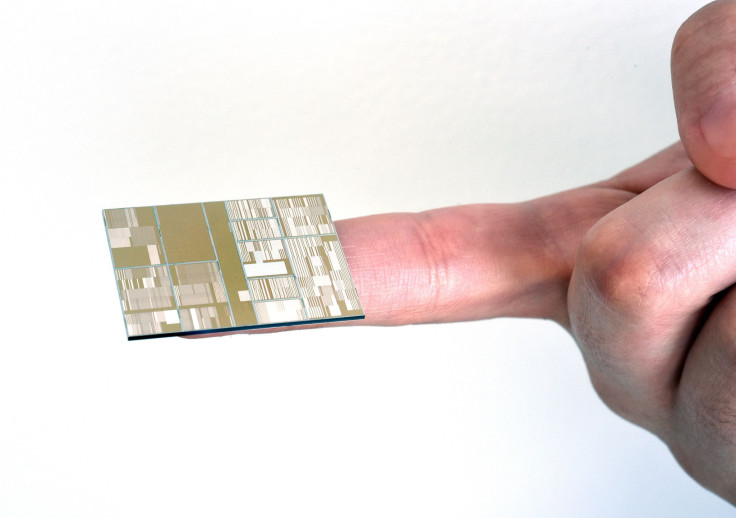IBM In Major Breakthrough With Computer Chips Featuring Tiny 7-Nanometer Transistors

IBM said Thursday said it had successfully created computer chips with microscopic 7-nanometer transistors, a major breakthrough for the tech industry that should allow hardware manufacturers to continue making faster computers and smartphones over the next few years.
By creating tiny transistors of only 7 nm (1 nm equals 1 billionth of a meter) IBM is able to fit more transistors onto its chips than possible with the current 22-nm and 14-nm transistor chips. By comparison, the new microscopic transistors would be only slightly larger than a DNA strand at 2.5 nm and an ant at 5 million nm. That allows for faster computer chips to be used in future devices, and that's important because more computer power usually leads to other technological breakthroughs.
“For business and society to get the most out of tomorrow’s computers and devices, scaling to 7 nm and beyond is essential,” said Arvind Krishna, senior vice president and director of IBM Research, in a statement. “That’s why IBM has remained committed to an aggressive basic research agenda that continually pushes the limits of semiconductor technology.”
For decades, transistors have gotten smaller, allowing for more powerful computer chips to be created. This is known as Moore's Law, but recently, some experts have begun to question if it would be physically possible for companies like IBM to continue making smaller transistors. With IBM's accomplishment, it appears Moore's Law will hold up for at least a few more years.
To create the 7 nm transistors, IBM teamed up with other chipmakers, including Samsung, and used a silicon-germanium mixture instead of just silicon. It also had to develop new manufacturing processes to achieve working transistors. For IBM, the next challenge will be to figure out a way to create these chips at a mass scale so they can be commercially viable.
© Copyright IBTimes 2024. All rights reserved.






















